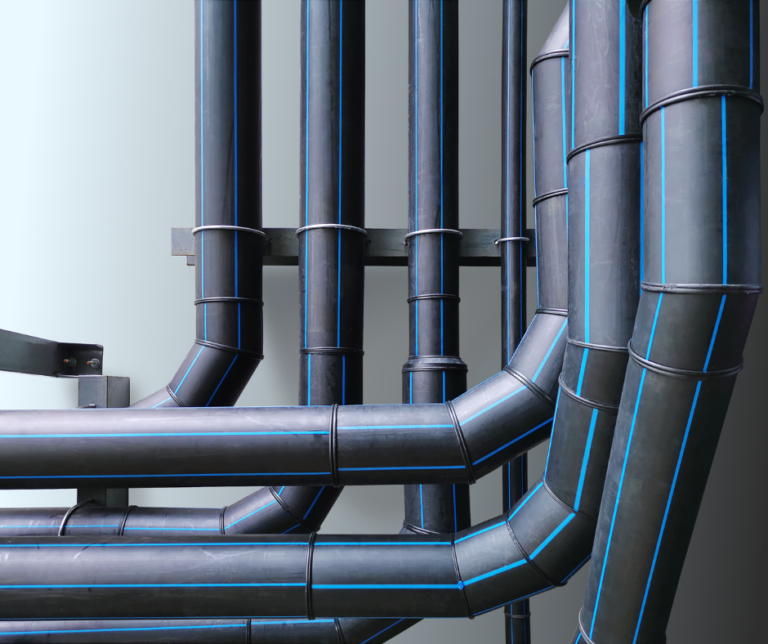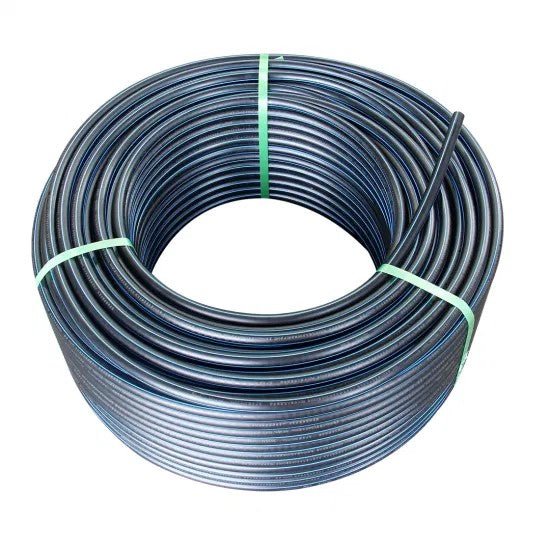Common Questions About Texas hdpe pipe manufacturer and Their Process
Wiki Article
Comprehending the Secret Perks of HDPE Pipeline for Water and Wastewater Administration
Making use of HDPE pipeline in water and wastewater administration provides various advantages that merit consideration. Its extraordinary toughness and lengthy life-span make it a recommended selection for several projects. Additionally, the material's resistance to corrosion and chemical damage enhances its integrity in numerous settings. Nonetheless, the advantages prolong beyond just long life and resistance. Exploring its cost-effectiveness and environmental impact reveals a lot more compelling factors for its widespread fostering in modern frameworkExceptional Toughness and Durability

HDPE pipe stands out for its phenomenal toughness and durability, making it a recommended choice in water monitoring systems. Constructed from high-density polyethylene, these pipelines can withstand considerable stress and tension, making certain dependable efficiency over time. Their durable nature permits them to endure severe ecological conditions, consisting of temperature level variations and soil motions, which can create various other materials to stop working.
The life-span of HDPE pipelines often goes beyond 50 years, offering a cost-effective remedy for communities and markets alike. In addition, the product's lightweight properties simplify setup, lowering labor prices and durations. This resilience reduces the requirement for regular repair services or substitutes, better boosting its financial allure.
In water monitoring applications, the integrity of HDPE pipelines means less disturbances and boosted solution connection, making them indispensable to lasting framework growth. The mix of toughness and long life strengthens HDPE's function as a foundation in efficient water administration services.

Resistance to Deterioration and Chemical Damage
While many materials catch rust and chemical damage in time, HDPE pipes display exceptional resistance, making them ideal for various water administration applications. This durability originates from the molecular framework of high-density polyethylene, which is naturally non-reactive and does not rust like metals or deteriorate from exposure to severe chemicals. Therefore, HDPE is highly effective in environments with hostile materials, such as wastewater systems that might include acids, bases, and organic solvents.
In addition, HDPE pipelines can stand up to environmental elements such as soil level of acidity and saline problems, better improving their suitability for diverse applications (Texas hdpe pipe manufacturer). Their capacity to preserve structural honesty in time reduces the threat of leaks and failures, which is essential in making certain the security and reliability of water circulation and wastewater administration systems. Consequently, the resistance to deterioration and chemical damage noticeably adds to the overall performance and durability of HDPE piping solutions
Cost-Effectiveness and Economic Advantages
When thinking about the financial effects of water management systems, the cost-effectiveness of HDPE pipelines becomes noticeable. These pipes supply reduced installation and upkeep costs contrasted to conventional materials like steel or concrete. Their lightweight nature streamlines transportation and installment, resulting in minimized labor expenses. Furthermore, HDPE pipelines exhibit a lengthy life expectancy, typically going beyond 50 years, which equates to less replacements and long-lasting savings.Moreover, the resistance of HDPE to deterioration and chemical damage decreases the need for costly fixings and substitutes. The pipelines additionally support efficient water flow, decreasing power expenses linked with pumping systems. By minimizing leakages and water loss, HDPE pipelines add to substantial financial advantages for districts and sectors alike. Overall, the initial investment in HDPE piping can generate significant economic returns over the life-span of the water monitoring system, making it a sensible option for lasting facilities advancement.
Environmental Sustainability and Decreased Impact

Convenience and Adaptability in Setup
Due to their special buildings, HDPE pipelines use exceptional adaptability and versatility in installation, making them suitable for a wide variety of applications. Their light-weight nature allows for easier handling and transport, minimizing labor expenses and installation time. HDPE pipelines can be bent and shaped to fit numerous surfaces and project needs, which is especially useful in challenging settings.Additionally, their resistance to deterioration and chemical damages allows for installment in diverse setups without the requirement for specialized safety finishings. The ability to fuse joints develops a continuous, leak-free system, boosting the general honesty and dependability of the installation. HDPE's adaptability also suits ground movement, lowering the risk of damages in areas susceptible to shifting soil. On the whole, these attributes make HDPE pipelines not only functional but likewise a preferred option for water and wastewater monitoring systems.
Often Asked Inquiries
How Does HDPE Pipe Contrast to PVC in Water Management Applications?
HDPE pipeline supplies premium versatility, resistance to deterioration, and resilience contrasted to PVC. Its lighter weight facilitates simpler setup, while its lengthy lifespan decreases substitute prices, making HDPE a preferred option in water monitoring applications.What Is the Life-span of HDPE Pipes Under Common Problems?
Under regular problems, HDPE pipes can have a lifespan ranging from 50 to 100 years. Their toughness and resistance to deterioration add to Texas hdpe pipe manufacturer their long-term performance in various applications, making them a trustworthy selection for framework.Are HDPE Pipes Recyclable After Their Service Life?
Yes, HDPE pipes are recyclable after their life span. hdpe pipe suppliers Midland TX. They can be processed and repurposed into new items, substantially lowering ecological influence and advertising sustainability within the market, making them an environment-friendly option for piping optionsWhat Is the Setup Process for HDPE Pipes?
The installation procedure for HDPE pipelines includes site prep work, trenching, pipeline combination or mechanical joining, backfilling, and pressure screening. Correct methods guarantee a resilient and efficient system for transporting water and wastewater properly.Can HDPE Piping Be Utilized for Both Potable and Non-Potable Water Equipments?
Yes, HDPE pipelines can be utilized for both potable and non-potable water supply. Their adaptability, sturdiness, and resistance to corrosion make them ideal for different applications, ensuring secure and effective transport of water in various contexts.Report this wiki page